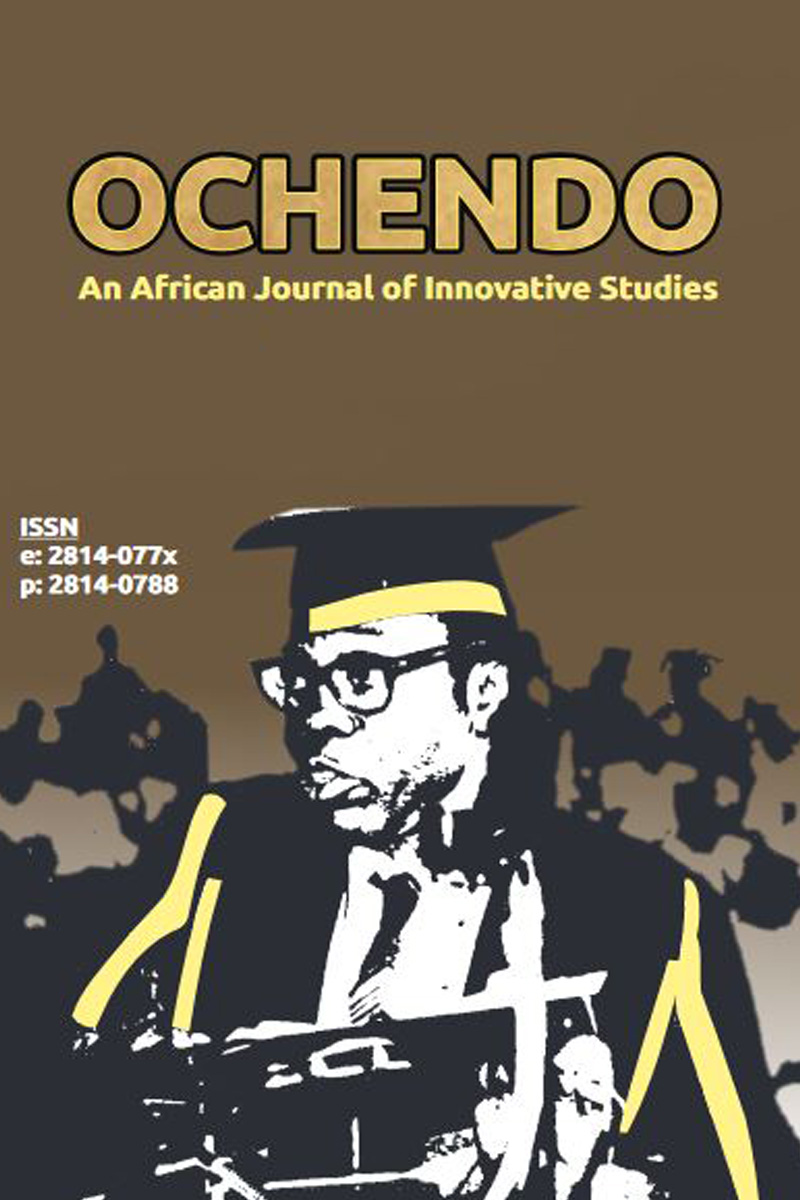 OCHENDO - An African Journal of Innovative Studies (OAAJIS) (Vol. 1 No. 1, 2020)
LANGUAGE EXPRESSION AND RELIGIOUS REFLECTION IN AFRICAN CONTEMPORARY SOCIETY
OCHENDO - An African Journal of Innovative Studies (OAAJIS) (Vol. 1 No. 1, 2020)
LANGUAGE EXPRESSION AND RELIGIOUS REFLECTION IN AFRICAN CONTEMPORARY SOCIETY
ABSTRACT
There are three major characterizations of religious expressions- the theoretical, a system of belief; the practical, a system of worship; and the sociological, a system of social relationships communicated through language and literature. The correct interpretation of African religious beliefs was one of the problems of Colonial Missionaries in Africa. Similarly, from the way Islam and Christianity are practiced in Africa which is a consequence of the misinterpretations of these foreign religions by its practitioners, one would wonder if they are the same as the ones practiced in other cultures. What is required is language and literature to break the barriers of cultural difference in order to aid the interpretation of religious objects, symbols, expressions, emotions and rituals. Qualitative research is applied to investigate why language and literature are the backbone of religion. Phenomenological and historical approaches are adopted in this research writing because it seeks to understand the phenomena of religion. One of the findings in this research is that, every interpreter/translator is an extortionist of an original idea because she or he cannot exactly represent the idea and emotions of religious behaviours by matching objects and actions as originally intended by the adherer with words in the foreign language, without alterations. Another is that, the inability of some emerging African Western religious actors to understand and interpret the Bible and Qur’an to buttress the religious, emotional, ethical, social and cultural needs and values of Africans have derogated African religious thought. Religious actors in Africa should learn to respect African beliefs, religious groups, denominations and individuals and avoid divisive criticism of others in their writings and preaching. Religious actors in Africa should learn to respect African beliefs, religious groups, denominations and individuals and avoid divisive criticism of others in their writings and preaching. It has discovered the significance of language in the projection and true message of religions.

